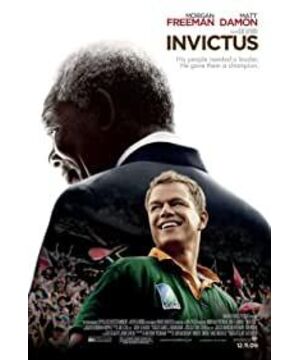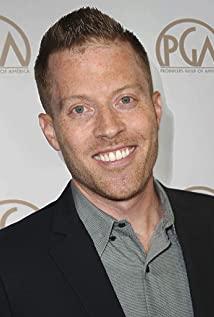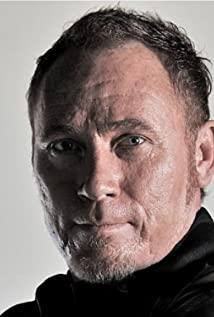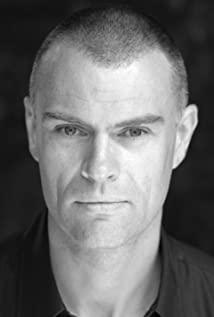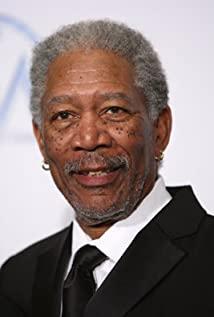First up is Morgan Freeman. I'd heard long ago that Freeman wanted to play Nelson Mandela, but looking at Freeman's graying hair, ravine face, and age spots that his dark skin couldn't hide, the promise was fulfilled. The danger of a bad check. In the end, Morgan Freeman told me with practical actions that movies, like history, are not necessarily general histories, but can also be chronological histories. Freeman, 72, playing Mandela, 77, doesn't fit the bill.
Next is Old Cowboy Eastwood. Two years earlier, Eastwood made two films describing the American-Japanese Pacific War - "The Flag of the Fathers" and "Letter from Iwo Jima", and was accused of racial discrimination because there were no black American soldiers in the film. In politically correct America, this is a serious accusation. Now, Eastwood is refuting the rumor with this "It Happens in People".
The film tells the story of South Africa winning the Rugby World Cup as host in 1995. Apartheid had just been lifted and Mandela had just been elected president. Although institutional racism has been eliminated, conceptual racism is difficult to eliminate. When blacks gained power, there was an urge to liquidate whites in turn. Mandela can rely on the power of the president to suppress some discordant claims, but this is not a long-term solution, he needs an opportunity to bring the country together. The Rugby World Cup in South Africa is such an opportunity to put patriotism above racism. Under Mandela's strong push, South African rugby team Antelopes has been transformed from a symbol of racism into a hero for the whole of South Africa. We have once again seen the great power of sports in uniting people's hearts. The Federal German football team once staged the "Berne Miracle", and now Mandela and his football team have reproduced this miracle.
The film tries to instill in you that Mandela as president is greater than Mandela as a civil rights leader. The so-called absolute power is absolutely corrupt. There have been too many heroes in history who have transformed into dictators in the face of power. Therefore, it is very difficult not to abuse power or fight for power. Mandela did it, he used his actions to tell us what tolerance and equality are. Later, Mandela left the presidency and, like Washington, chose to retire, setting an example for his successors. These are the stories outside the film.
The article has been written not quite like a movie review. Come back and talk about Freeman's performance, everyone knows that he is running for the Oscars. Throughout the film, Mandela is portrayed as restrained, unassuming, speaking in heavily accented English. Maybe it's a good imitation, I can't tell, and only South Africans can judge. But the Oscars judges are few South Africans, and the Oscar tradition favors some neurotic performances, and Freeman is clearly not among them this time. Personally speaking, I prefer Freeman's performance, which is deep and introverted, but reveals a powerful spiritual force from the bottom of my heart. For the shaping of great people, resemblance is often the most difficult, and Freeman did it. He explained Mandela's spirit very well, just like the poem that runs through the film, from the British poet Ernest's "Unconquerable" ": I am the master of my destiny. I am the commander of my soul.
View more about Invictus reviews


